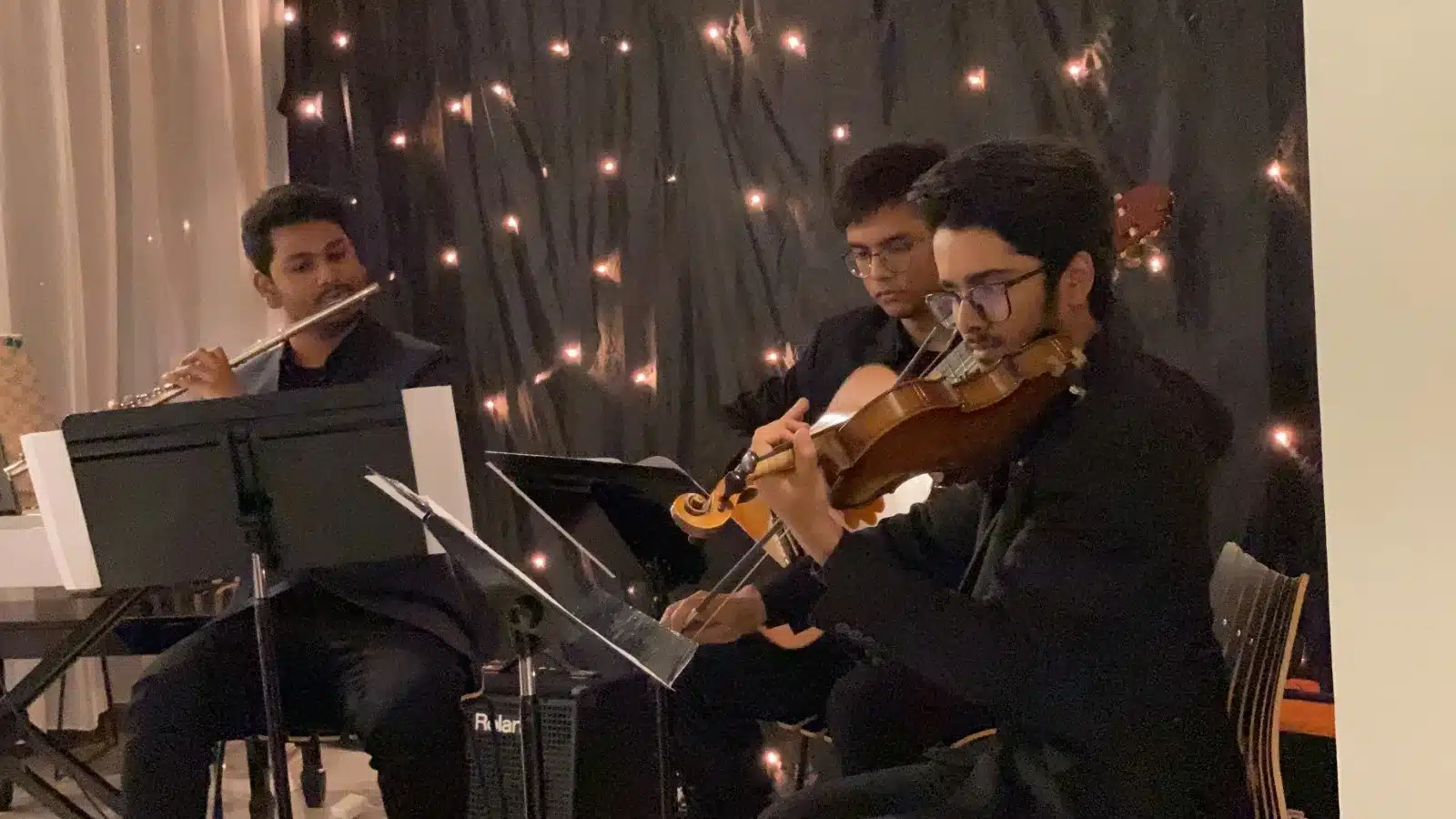
02 Jun Commonwealth: Meet Dakha’s Musicians
Meet The Commonwealth
DHAKA'S STORY
Welcome to the second in an ongoing series of blog posts where we speak to one ensemble who is taking part in the Commonwealth Community Music Initiative. We recently spoke to members of the Classical Music Academy of Dhaka (CMA), who are based in Bangladesh, including their director, Iftekhar Anwar.
Hi everyone, thanks for coming. First question: how did the Classical Music Academy of Dhaka begin and what is the history behind it?
Iftekhar: I studied music in both Europe and the United States, but when I came back to Bangladesh it was difficult to find people who could play classical instruments. I wanted to meet people who would be willing to perform in an ensemble. Around the same time, I started to teach the guitar and some of my students started playing other instruments, such as the flute or clarinet and that’s really how it got started. Gradually we tried to perform in different places. Sometimes we would have musicians who came from abroad and helped us improve together as a group. Currently, we are trying to practise online because of the current situation, but it just isn’t the same as performing together.
How big is the CMA?
Iftekhar: We are pretty small, we don’t even have our own premises. We share our classroom with a law school.
Why did you all personally get involved with the Academy?
Suchorit: I started playing the violin in around 2010. My teacher was a part of CMA, and after around a year they suggested joining. I’m still loving it here and learning every day.
Xavier: The first time I came across the CMA was when I was in seventh grade. Someone came to our classroom and said “our group will be offering guitar and violin lessons for anyone who is interested” – and that Wednesday I went along and never looked back.
Tirthendu: I also saw that they were offering guitar and violin lessons. I saw a lot of people performing with guitars, but violins are more unique and I had never even touched one. It felt like an opportunity to learn something new. At the beginning there were not many of us doing violin compared to guitar … a lot of people didn’t know what the instrument was, so I had to explain it to them. I think it sums up the void that we have in classical music performance in Bangladesh.
Pramit: I was in fifth grade when I started playing guitar. I had a similar experience as the others, with someone from CMA coming into school and advertising lessons. I felt like this was a great opportunity that I didn’t want to miss. It was difficult for me to decide which instrument to learn! – but I found I was more interested in the guitar. After a few months I noticed that we were learning a different way to other schools in the area – we were learning in a more Western style to others. I’ve got to perform so much. It’s been a wonderful experience.
Nahian: I started as a singer because my parents are both singers. I tried a lot of instruments – keyboard, flute, etc – but I saw a concert and I met a violinist who was performing. I went for lessons with him, but then I also started teaching myself from the internet. After a few years my dad introduced me to a German violinist, Simon Kierspel. He comes to Bangladesh often for his work, and met myself and other violinists from CMA in 2017. After meeting him, I decided to resume my lessons. It’s introduced me to more Western music, which is completely different. I listen to a huge range of music – rock, eastern and western classical music, even dubstep – and I love it all.
Reeju: I chose to learn guitar because a lot of my friends started to play it. They stopped playing after one semester and withdrew from the course, but my family wanted me to continue. It took a while to understand the instrument but I got there and it was great fun learning from my teacher, and messing around before and after the sessions! Once I finished, I took a couple of years out, and then my friend told me to start again! By then I was more interested in learning the flute, and within a year I was performing as a flutist in CMA.

Is this the first international event you’ve ever done?
Suchorit: Yes, I think it is the first time for an event, but during the pandemic we have performed virtually with quite a few international musicians. This is the first official collaboration – this is going to be bigger and a little bit different.
Pramit: We haven’t yet gone to any other countries to perform, but last year we collaborated online with musicians from across the world: the UK, USA, Mexico, Germany, Northern Cyprus, Panama and Brazil. We did a lot of recordings. When we were students, in 2012, the well-known classical guitarist Johannes Möller, flutist Professor Mats Möller, and violinist Eva Lindal visited us to perform with CMA and teach some lessons. At the time I had only just begun learning and performing, and I just remember attending their masterclasses and being amazed by their quality.
Iftekhar: It all began when we organised the ‘Classical & Flamenco Guitar Festival’ in 2011, where we campaigned to ‘Save The River Buriganga’. CMA invited Mir Ali and Dr. Stanley Yates from the USA. From the start, I felt that we needed someone who could spend time with the students who would be understanding to our culture, so I wanted to invite Ricardo Rodriguez, a well-known violinist, as we went to university together. He visited us in 2014 and stayed for ten days. He gave us some great lessons and we all performed a series of concerts. Since then, he has been a really good friend to our academy. We have been performing together on video recently. It’s hard to get international musicians to come and visit so I wanted to take this opportunity.

What are you all looking to get out of CCMI?
Suchorit: Personally, I enjoy doing music. The best gift music has given me is everyone I’ve met on the way. I want to get more involved – music really helps us to connect with each other. When something big is coming up, it really helps motivate me to improve.
Tirthendu: Personally, I would like to explore the opportunity of diversity in music. I would like to learn different modes of music, see how people from across the world and in different cultures are learning and performing music, and adapting those into my own ways of learning and teaching. I think this is a great chance to do this and work with everyone in this project.
Suchorit: I want to perform in duets and similar, but the western musical repertoire in Bangladesh is very limited. You can’t just say “oh, I want to perform this Mozart piece” because very few people know how to play it. I hope in this collaboration that we can learn a deeper understanding of our interpretation of music, and then build upon it.
Pramit: I agree, I think we will meet more people like us, learning under the Western classical music system which isn’t common in Bangladesh. I am really looking forward to it!
I hope that we can help with that. You’ve heard John Koutselinis’ ‘We Are One’ piece – what do you think about it?
Iftekhar: The composer is absolutely brilliant and I am excited to play the piece.
Do you see CMA doing any future collaborations with TPO?
Iftekhar: Definitely, we would love to.
Thank you for chatting to me today. It’s been wonderful to speak to you!
—
If you would like to find out more about the Classical Music Academy of Dhaka, or get in contact with them, you can find them on social media:
Facebook: https://www.facebook.com/ClassicalMusicAcadmeyOfDhaka
YouTube: https://www.youtube.com/c/ClassicalMusicAcademyofDhaka
Instagram (Username: cma_dhaka) : https://www.instagram.com/cma_dhaka/?hl=en
If you would like to be featured as our ‘Ensemble of the Month’, please let us know. Email ccmi@thepeoplesorchestra.com, or message +44 7786 629531 so we can organise an interview.
